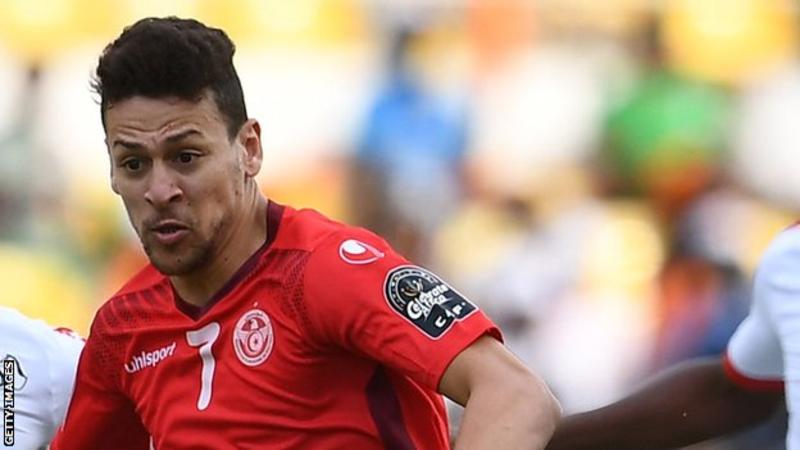Tunisia international forward Youssef Msakni will miss the World Cup after being ruled out for six months with a knee injury.
The 27-year-old was injured during his club Al Duhail’s 5-2 win over Al Sailiya in the Qatar Stars League (QSL) on Saturday.
“Msakni suffered a cruciate ligament injury during Al Duhail’s match against Al Sailiya in the final match of the QNB Stars League,” an Al Duhail statement read.
“He will be out for action for six months, ending his season with Al Duhail and will also be absent from his national team’s participation in the World Cup in Russia which will begin in June.”
Msakni took to Instagram to celebrate the club’s sixth QSL title where he confirmed the injury.
“Thank God for this, but it’s just fate to experience the unexpected. Congratulations for the trophy. Sadly this injury has denied me a chance to continue with my club and to play in the World Cup,” Msakni posted.
Mskani finished as second top scorer in the Qatari league with 25 goals – one behind team-mate and Moroccan international Youssef El-Arabi.
Only returning to action after a previous lay-off, this injury comes as a significant blow to club and country – with Al Duhail still competing in this season’s Asian Champions League.
The 2018 World Cup starts on 14 June in Russia, with Tunisia’s first match against England four days later.
Msakni has been capped 39 times by the Carthage Eagles, scoring nine goals, including a hat-trick against Guinea as Tunisia sealed qualification to the World Cup finals after a 12-year absence.
Tunisia’s match against England will be the second World Cup meeting between the two countries after they lost the first 2-0 to the Three Lions at France ’98.
The North Africans will face Belgium in their second group game, with Panama completing Group G.
Campaigners at three successive Fifa World Cups between 1998 and 2006, Tunisia missed the tournaments in South Africa in 2010 and Brazil 2014.
The 2004 African champions topped a tricky qualifying group containing DR Congo, Guinea and Libya to seal their place in Russia.
Source: BBC



